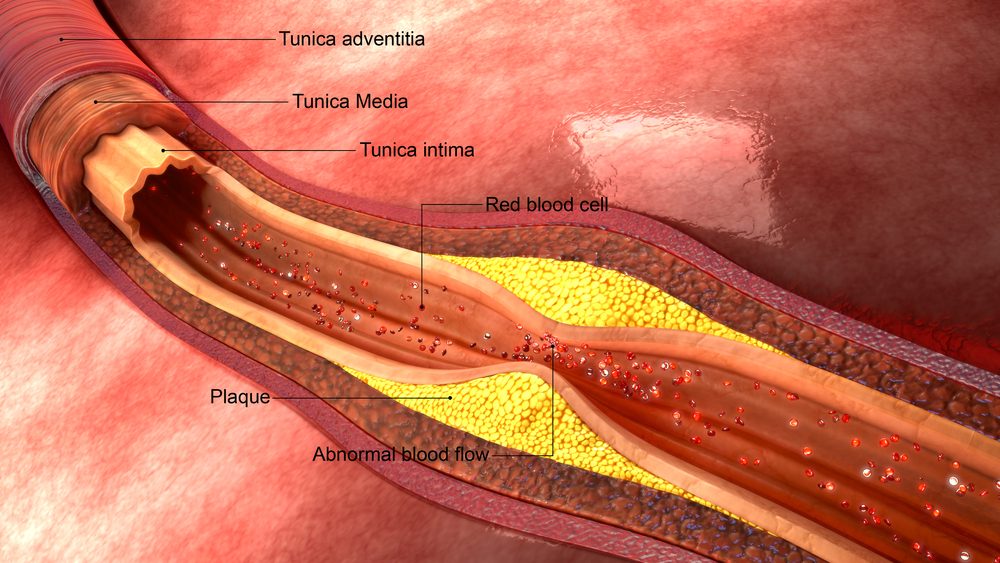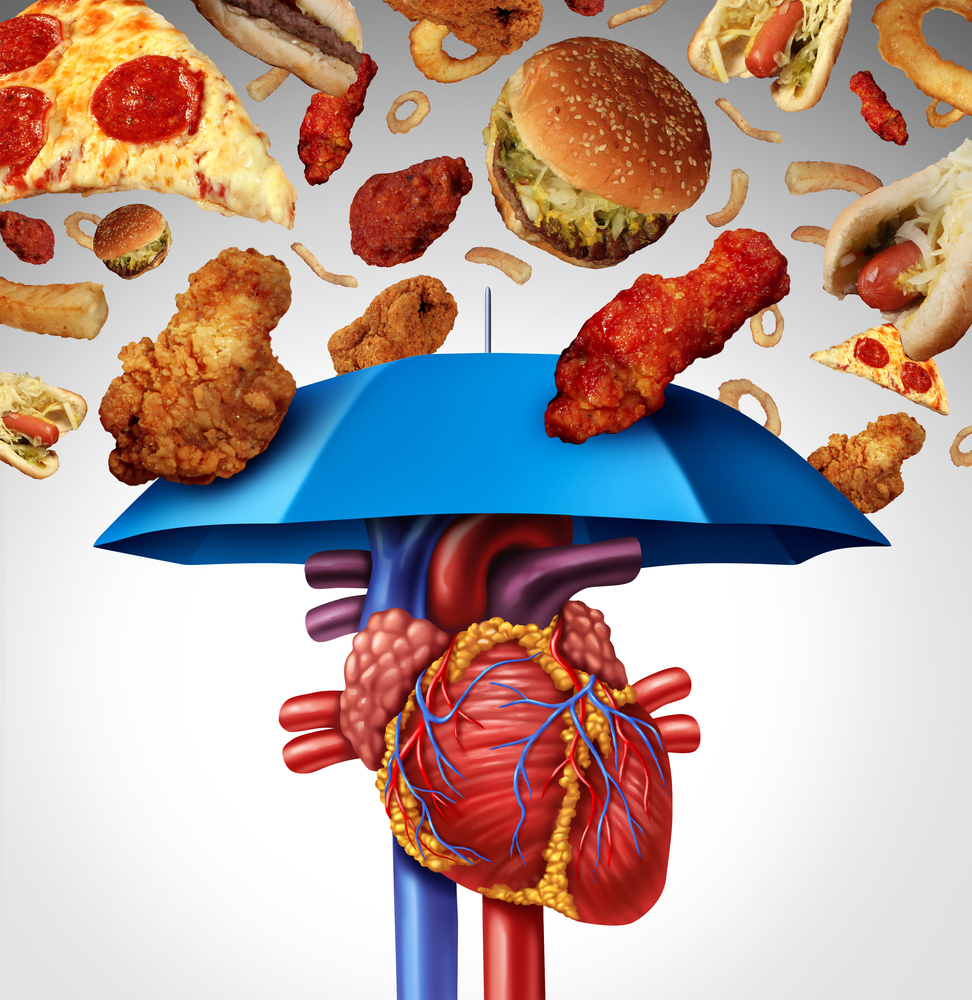
Here’s Everything You Need To Know About Cholesterol

Cholesterol is produced naturally by the body, with nearly 75% of the cholesterol in the bloodstream being produced by the liver. The remaining 25% comes from the food we have. An elevated level of cholesterol is bad for our health, but the right level of cholesterol helps in maintaining cell membranes and synthesizing hormones. According to the centers for disease control, approximately 33% of all adults suffer from high cholesterol levels.
[su_quote class=”cust-pagination”]“Cholesterol does not exist in vegetables. Vegetables do not clog arteries.” — Jane Velez-Mitchell [/su_quote]
Testing For Cholesterol

Alexander Prokopenko/Shutterstock
The American Heart Association recommends that all adults over the age of 20 must have their cholesterol levels evaluated every 4 to 6 years. For cholesterol to be screened, you have to take a blood test. The results show the level of high-density lipoprotein cholesterol (good cholesterol), low-density lipoprotein cholesterol (bad cholesterol) and triglycerides.
HDL cholesterol can reduce the amount of LDL-cholesterol (bad cholesterol) in the arteries. High level of good cholesterol is always good because it reduces the risks of heart disease.
Triglycerides
This is a type of fat that is found in the blood. Normal levels of triglycerides should be below 150 MG/DL. Anything higher than this increases your risk of heart disease and metabolic syndrome, which is a risk factor for diabetes, stroke, and heart disease. Smokers, obese people, diabetics, and those who abuse alcohol without exercising are at a high risk of having high triglyceride levels.
A cholesterol test determines the total cholesterol in the blood, including HDL, LDL, and VLDL cholesterol. The sum of all types of cholesterol should not exceed 200 MG/DL. Higher levels put you at a high risk of developing heart disease.

Oleksandra Naumenko/Shutterstock
Cholesterol From Food
The cholesterol in food is not similar to the cholesterol in the blood. Most people do not feel any of consuming food cholesterol because it has minimal effects. However, around 30% of the population can be affected by food cholesterol. Such people should avoid foods that are high in saturated and trans fats, which can be in the form of oil, fatty meats, full-fat dairy products, egg yolks, and various fast foods.
Consuming foods that have high cholesterol content and saturated fat is not the only reason for high cholesterol levels in some people. Genetics are also to blame for this condition. The genetic condition is called familial hypercholesterolemia.

Lightspring/Shutterstock
Risk Factors For High Cholesterol
Several factors can put you at a risk of developing high cholesterol. These include diets that are high in saturated fats, trans fats, and cholesterol; being overweight or obese; and leading a sedentary lifestyle. Other risk factors that cannot be controlled include age, gender, and family history.
Cholesterol And Children
The hardening of the arteries (arteriosclerosis) begins in childhood and may have a role to play in the development of heart disease during adulthood. Children with parents or grandparents who had any form of heart disease should have their cholesterol levels checked. The American Heart Association recommends regular exercise for children, maintaining a healthy weight and having a low-fat diet with plenty of fruits and vegetables.
Why You Should You Keep Cholesterol Level Low

eranicle/Shutterstock
High levels of LDL cholesterol expose you to the risks of heart disease and strokes, which are the leading causes of death in the United States. LDL-cholesterol is potentially bad because it contributes to the buildup of plaque on the artery walls, restricting blood supply to the heart and the brain. This can result in a heart attack or stroke.
Having Fiber Lowers Cholesterol Levels
Fiber-rich diets can reduce LDL cholesterol. They also help with weight loss; weight is a high-risk factor for high cholesterol levels. Foods such as fruits, vegetables, whole grains, legumes, and beans should be used regularly for the beneficial properties they have.
[su_quote class=”cust-pagination”]“Cholesterol to go with alcohol; all the bad things in English-speaking life end in –ol.”— Padgett Powell [/su_quote]
The build up of cholesterol in the body is a natural phenomenon. However, the power to control the buildup of LDL-cholesterol remains in your hand. You should maintain a proper diet and remain active to keep the level low.
More in Health & Well-being
-
`
Here’s Everything You Need to Know About Open Relationships
An open relationship is a consensual arrangement where partners agree to engage in romantic or sexual relationships with other people. Unlike...
June 6, 2024 -
`
Explore the Multifaceted Goals of Meditation
What is the goal of meditation? If you have ever found yourself asking this question, you are not alone. Meditation has...
May 31, 2024 -
`
When is National I Love You Day Celebrated? Mark Your Calendar
Life can get hectic, and sometimes amidst the daily grind, we forget to express our love and appreciation for the phenomenal...
May 23, 2024 -
`
When’s the Best Time of Day to Fish?
For any angler, a successful fishing trip hinges on several factors. But one of the most crucial elements is timing. Knowing...
May 14, 2024 -
`
What Mental Illness Does Britney Spears Have? Discovering the Answer
Britney Spears, a name that resonates with millions around the globe, goes far beyond the glitz and glamour of her stardom....
May 7, 2024 -
`
Here Are Some Easy Ways To Say No To Unrealistic Expectations In Your Relationship
If you are in a relationship, you should constantly work on improving it. Some early lovebirds fall in love too quickly...
May 3, 2024 -
`
Therapy? Medication? What Are the Treatments for PTSD
Post-Traumatic Stress Disorder (PTSD) is a common after-effect of traumatic events. It can be a debilitating condition, but the good news...
April 25, 2024 -
`
Courting vs Dating – Which Relationship Path is Right for You?
In today’s fast-paced world, the terms ‘courting’ and ‘dating’ often swirl around in conversations about relationships. While some people may use...
April 23, 2024 -
`
Essential Mexico Travel Tips for a Seamless Adventure
Mexico, a land of vibrant culture, breathtaking landscapes, and mouthwatering cuisine, beckons travelers from across the globe. But before you embark...
April 16, 2024















You must be logged in to post a comment Login